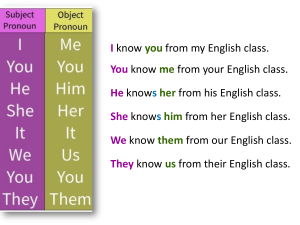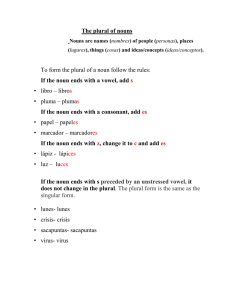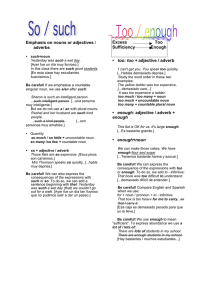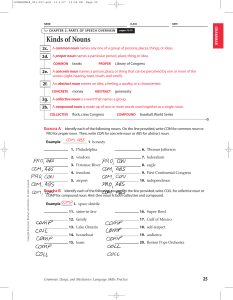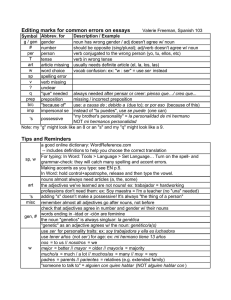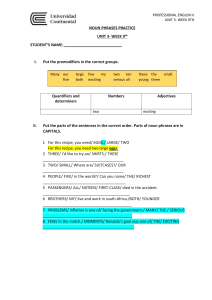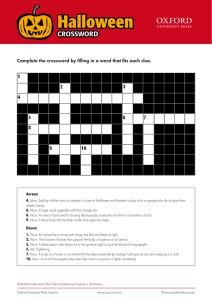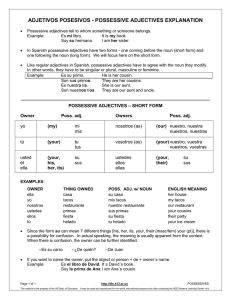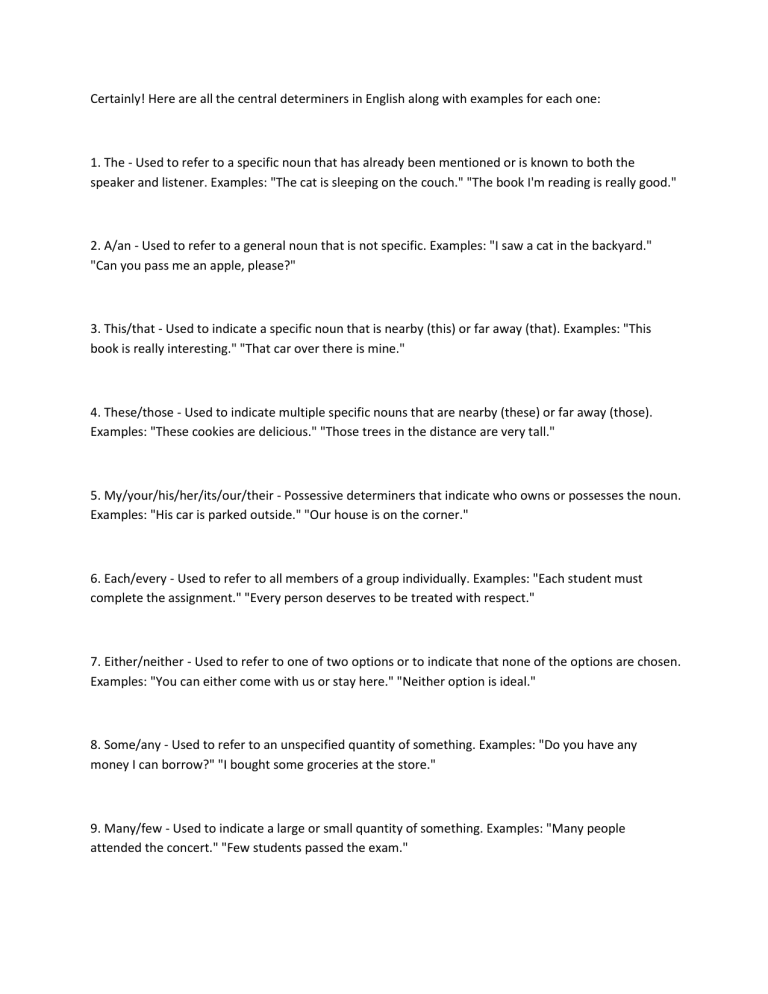
Certainly! Here are all the central determiners in English along with examples for each one: 1. The - Used to refer to a specific noun that has already been mentioned or is known to both the speaker and listener. Examples: "The cat is sleeping on the couch." "The book I'm reading is really good." 2. A/an - Used to refer to a general noun that is not specific. Examples: "I saw a cat in the backyard." "Can you pass me an apple, please?" 3. This/that - Used to indicate a specific noun that is nearby (this) or far away (that). Examples: "This book is really interesting." "That car over there is mine." 4. These/those - Used to indicate multiple specific nouns that are nearby (these) or far away (those). Examples: "These cookies are delicious." "Those trees in the distance are very tall." 5. My/your/his/her/its/our/their - Possessive determiners that indicate who owns or possesses the noun. Examples: "His car is parked outside." "Our house is on the corner." 6. Each/every - Used to refer to all members of a group individually. Examples: "Each student must complete the assignment." "Every person deserves to be treated with respect." 7. Either/neither - Used to refer to one of two options or to indicate that none of the options are chosen. Examples: "You can either come with us or stay here." "Neither option is ideal." 8. Some/any - Used to refer to an unspecified quantity of something. Examples: "Do you have any money I can borrow?" "I bought some groceries at the store." 9. Many/few - Used to indicate a large or small quantity of something. Examples: "Many people attended the concert." "Few students passed the exam." 10. All - Used to refer to the entire group or quantity of something. Examples: "All the cookies were eaten." "She gave her all in the performance." These are all the central determiners in English along with examples for each one.
